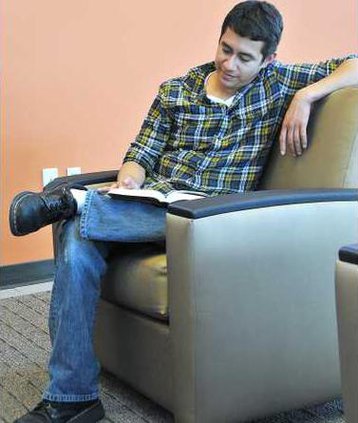The Associated Press-Stanford University Education Poll
This poll was conducted by Abt SRBI Inc. from Sept. 23-30. It is based on landline and cell phone telephone interviews with a nationally representative random sample of 1,001 adults. Digits in the phone numbers dialed were generated randomly to reach households with unlisted and listed landline and cell phone numbers. Interviews were conducted in both English and Spanish. As is done routinely in surveys, results were weighted, or adjusted, to ensure that responses accurately reflect the population’s makeup by factors such as age, sex, education and race. In addition, the weighting took into account patterns of phone use — landline only, cell only and both types — by region.
The vast majority of Americans feel it is better for some students to go to community college instead of a four-year school, according to a new poll by The Associated Press and Stanford University released Tuesday.
Respondents rated community colleges as excellent or good at nearly the same rate as four-year colleges, and that's good news for Gainesville State College in Oakwood.
"It's exciting to be recognized for the great educational value we can provide," Gainesville State College spokeswoman Sloan Jones said.
The college, which has about 9,500 students, offers two-year degrees and certificate programs, as well as a limited selection of baccalaureate degrees.
Seventy-one percent of respondents in the poll, which asked 1,001 adults nationwide about American higher education, said it's sometimes better for students to pursue a diploma from a two-year college than aim to enter a four-year school.
Jones agreed. Many students like the smaller class sizes and lower tuition fees at two-year colleges, she said.
Others appreciate the manageable transition from high school, said Kelly Deasy, director of student academic success at Gainesville State.
"Not a lot of students want to make such a big leap from high school to a large institution, where they might feel lost," Deasy said.
Growing enrollment numbers at community colleges as well as technical schools reflects the trend as well.
The Technical College System of Georgia saw a 22 percent jump in enrollment this year over last year, said Sandra Maughon, a spokeswoman for North Georgia Technical College.
Enrollment figures also climbed at Gainesville State, with about a 6.9 percent increase in 2009.
Maughon said this is partly due to the economy, as many people are looking to gain new job skills.
"They can re-skill and get back to work in the shortest time possible," Maughon said.
She adds that two-year colleges provide a good educational base for young people who want to continue their education and for adults who work full time or have families.
"A lot of them have a good support system for nontraditional students, and a lot of our activities are family-oriented," Maughon said.
Gainesville Schools Superintendent Merrianne Dyer said the possibility of college is discussed in school from a young age.
"We see our role as making them aware of the choices and helping their parents see it is possible for them," she said. "We encourage them to find the area they have an interest in and find out where those abilities match a particular skill. Many are lead to technical colleges because it matches their abilities."
Stanford and the Associated Press released the poll as President Barack Obama and education leaders from across the country met in Washington, D.C., last week for a summit on community colleges.
President Obama said he wants the United States to have the highest proportion of college graduates by 2020.
However, today only 35 percent of community college students and 60 percent of four-year college students graduate with a diploma each year, Stanford researcher Michael Kirst said.
The poll results also revealed a disconnect between where minority students want to go to college and where they typically end up, Kirst said.
Forty-three percent of minorities said it's always better to try to get into a four-year college compared with 17 percent of whites.
The Associated Press contributed to this story

